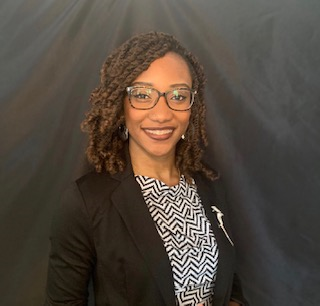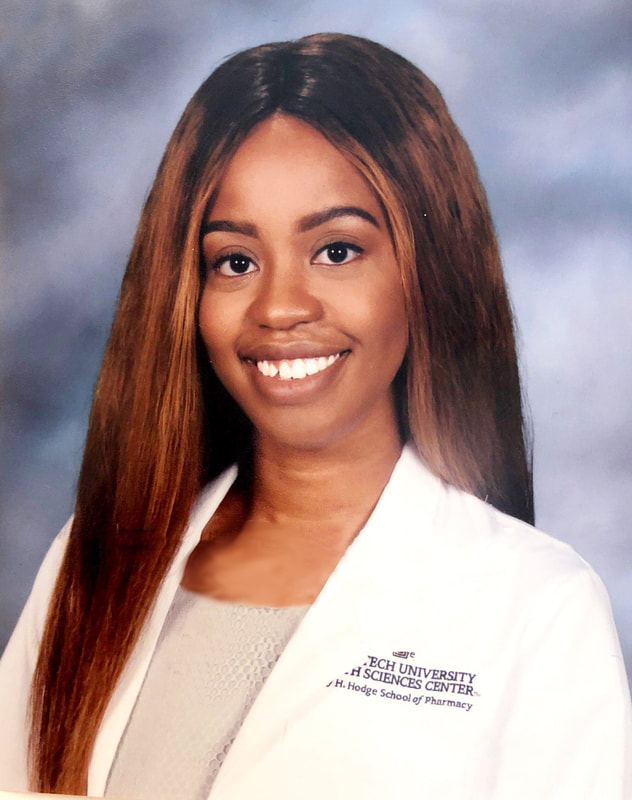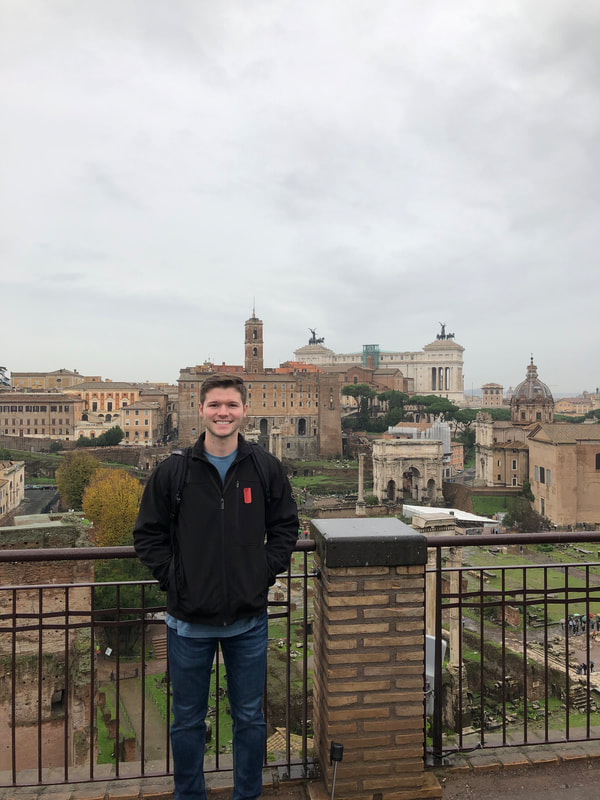|
Dear First Gen, The #coronavirus turned the world upside down. Academic institutions were rocked by a sudden public health emergency and were encouraged to shutdown to mitigate the spread of the virus. Colleges and universities canceled in-person classroom instruction and switched to online/distance learning. Students who never took an online course were forced to learn in this way and communicate with professors through online platforms. The coronavirus pandemic also changed the structure of graduation ceremonies, summer placements, and athletic trainings. The lives of ALL students were abruptly altered. Students reacted in so many ways by changing how the process new information, study, organize, connect with fellow classmates, apply to internships, interview, and etc. We interviewed three students and asked them to share their perspective on how they are reacting to #COVID19. Our guests and topics were:
At the end of the interview series, the conversation weaved into a theme of balancing school obligations and personal needs. Click on the images below to watch the interviews. Enjoy! Fellow Riser, Irnande ***Disclaimer: 2020. All rights reserved. All data and information provided on this site is for informational purposes only. No reproduction of any content on the website without the express permission of the author. The text, pictures and videos are the sole property of FirstGenRise.
3 Comments
Dear First Gen,
I had the esteemed honor of meeting Paul C. Brunson (@PaulCBrunson) in the flesh. So excited! I am a proud email subscriber and have been for years. Paul's newsletters highlighted his latest projects and future coaching opportunities. In 2018, I saw the announcement (finally had the courage to) submit by application, interviewed, and then accepted into one of his #Mastermind Groups. Unbelievable! And, since then, I have dutifully taken notes of his wisdom and teachings. Below is a video of his advice on how to approach #publicspeaking. Fellow Riser, Irnande  Dear First Gen, The majority of college students graduating today have one thing in common, regardless of their degree: student loan debt. While some are fortunate enough to attend college without having to take out any loans, the majority of American college graduates end up owing seemingly insurmountable debt to lenders. When I graduated more than 10 years ago, Sallie Mae was the leading lender. Today, Sallie Mae has been joined by Great Lakes, Nelnet, and Navient. It seems that almost every day, there is a new article reporting that #studentloandebt is a factor in #millennials delaying buying homes, getting married, starting a family, or growing a business. Some have even chosen to put off saving for retirement to focus on paying their student loans. The Good Ol’ Days I will never forget a conversation I had with a former neighbor. She and her spouse had both graduated from a state law school in the 1990s, and their combined student loan debt totaled just $55,000. I was shocked to hear that number. I could never imagine a graduate today walking out of law school with such a low amount of debt. She went on to tell me that they paid off their loans in just 5 years. The first few years, they kept their expenses low by living modestly. They also made the career decision to work in the public sector before moving on to work in “big law” for leading corporate law firms. The Times They Are A-Changin' On the other hand, when I graduated from college in 2007, I entered the “real world” with what I thought was a manageable $25,000 of student loan debt from my 4-year degree. Then I went to Georgetown for a 1-year master’s degree program and graduated with an additional $33,000 in debt. I kept my costs relatively low by living at my parents’ home, taking a carpool bus to school, bringing my lunch with me, and working a graduate assistantship. Others in my master’s program cohort took out double my amount because they lived in Washington, DC, and needed money for housing and more. That meant that many of them graduated with at least $60,000 in debt from a one-year graduate program. I figured mine was still a manageable amount of debt since it was a total of less than $60,000. However, I finished my program in 2008 during the recession and it’s not an exaggeration to say that no one was hiring. I worked two part-time jobs to pay my bills. But then I tacked on even more debt when I went to law school. I will be paying my student loans for years to come. A Little Financial Planning Goes a Long Way Why am I sharing this with you? I believe in getting as much information as possible to be sure you're setting yourself up for success down the road. It is important to know exactly how much you need to borrow to get your desired education. Then you can borrow the very least amount so you are not swimming in debt, do not have to delay future milestones like buying a house, traveling, or becoming a parent, if those will be priorities for you. A little financial planning goes a long way in paying off student loans. A few young people I have recently met shared that they have not begun paying their public student loans back because they are paying for the private loans they took out first. Another friend who graduated law school with me had more than $100,000 in student loans from two private institutions, yet paid off their #lawschool debt in less than 4 years. This person did make a six-figure income, but they also lived very modestly by limiting travel, shopping at discount grocery stores, finding inexpensive rent, and so on. Luckily for this person, the amount of compounded interest was limited because of the timing of paying back the loan. In many cases, graduates pay a lot in interest before they can pay any chunk of the principal. If you’re just starting to look into loans, I may be using terms that are new to you. Check out Student Loan Hero for more information, and do not be overwhelmed. I have come across many good resources that may be helpful to you. Podcasts – Brown Ambition Paychecks and Balances Trailblazers.FM Blog Posts – Student Loans: Everything you Need to Know Your Money Worth The Student Loan Debt Movement Tools – How to Create a Loan Amortization Schedule As a first-generation college student or graduate, there is a lot of information we are not privy to because no one in our families has gone through it before. That's why I’m here. These resources will get you started on how to plan for the financial implications of a #highereducation. Whether you are just starting the process of applying for grants and scholarships or you are debating whether to accept a job that offers student loan repayment assistance benefits, thinking about all of this will help you plan a little better. Fellow Riser, Irnande ***Disclaimer: 2019. All rights reserved. All data and information provided on this site is for informational purposes only. No reproduction of any content on the website without the express permission of the author. The text, pictures and videos are the sole property of FirstGenRise.  Dear First Gen, It’s hard to believe, but this November, I am celebrating one year since I accepted a position as a #MentalHealth advocate. As I began this new step in my career, I wrote posts for success in the first 30, 60, and 90 days on a new job. All of those suggestions are still relevant and I continue to practice them each and every month. As I look back, it's clear that I've come a long way, but I still have plenty to learn. Top Things I’ve Learned – 1. Know what's expected of you, and use your existing skills: I knew when I accepted this job that it was going to require a lot of reading, but I was not aware of exactly how much. My role requires me to read as much as I can to keep track of the actions of various legislators and stakeholders who may develop laws or regulations that could impact the level of care and access a mental health patient receives. I am constantly reading news articles, reports, newsletters, and emails. Fortunately, my previous positions required me to read similar material and I have learned how to distill this information so I can relay it efficiently and accurately to coalition members and partners. 2. Know that you will make mistakes: As a first gen who strives for perfection, I have gradually become comfortable with making mistakes and learning from my errors and confusion. Growing up, my parents expected me to always be the best student, and I rise to the challenge of being a 5-star employee as well. My learning curve in this new position was short and it did not take me too long to learn the terminology and industry culture. But sometimes, I still struggle. Although I prepare for the meetings I lead, I often still need a pep talk from my supervisor beforehand and a follow-up to discuss what went right and wrong. 3. Learn from constructive criticism: I wish I could say that I followed my own advice about not taking feedback and criticism personally, but I had a difficult time separating constructive criticism about my work from remarks about me as a person. While there were times I received an honest critique to make me a better mental health advocate and to improve on my weaknesses, my passion and work ethic interfered with my ability to receive and implement the feedback objectively without seeing it as a personal attack. Luckily, I have a strong tribe that helps me remain calm and see the positives of having supervisors who take a considerable amount of time from their schedules to discuss the reasons behind their opinions. Our meetings create an open, honest environment where I can learn how to be better at my job and exceed expectations. As I am given information on how to improve, I am learning what they pay attention to the most and how to focus on those things a little more so that I can be conscious of if or when I might make the same mistake. 4. We all fight similar battles: Being a mental health advocate for this past year has challenged me and allowed me to become aware of the anxiety, depression, and fear facing first-gen professionals. You battle your own expectations every day: You may want to consume so much information to be successful that it intensifies your worry and takes you away from activities you enjoy. You want to be the absolute best, but when it does not happen how you envisioned it, you may doubt if you are qualified and capable. You want to present a solid product on every project, but when it does not end up that way, you wonder if you are in the right field or whether you should transition into a role that fits your talents and gifts better. These thoughts and lessons cycle in and out on a daily, weekly, and monthly basis. As a first gen, I contemplate these emotions at the beginning and end of each day, but I've realized that they may even be common among all young professionals, not just first gens. What I have discovered is that it is important to acknowledge my thoughts and then reframe them so that they are helpful. Yes, I am worried. But it is a new experience and I am still adding value because of my experience that is different from others. My past experiences influence my current responsibilities and help reduce the time spent doing them so I can focus on my priority tasks. I belong here because I bring a different perspective and can shape a new way of thinking and set of procedures. Listening to myself and the feedback from others has been key over the past year and I am grateful to have reached this juncture to recognize how it is essential to rise. Fellow Riser, Irnande ***Disclaimer: 2018. All rights reserved. All data and information provided on this site is for informational purposes only. No reproduction of any content on the website without the express permission of the author. The text, pictures and videos are the sole property of FirstGenRise. Dear First Gen, On July 31, I was invited for a "Meet the Author" event by one of the Assistant Directors of the #JohnsHopkinsUniversity Hop-In Program. In the audience, there were first-generation college students in JHU's class of 2022. Before this day, I was pleased to learn that the program assigned my book, "The Rise of a First Gen" as required reading. The students asked amazing questions that centered on my mindset while navigating “two worlds”, adjustment to new environments, and strategies for certain transitions as a college student and professional. Each of the students had a capstone project and one of them chose to create a video. She self-narrated her childhood up to her current life as a first-generation college student at a prestigious university. Watch the video below! #Filipina #Filipino Tell me: What resonated with you in her story? How would you tell your own story? Fellow Riser, Irnande ***Disclaimer: 2018. All rights reserved. All data and information provided on this site is for informational purposes only. No reproduction of any content on the website without the express permission of the author. The text, pictures and videos are the sole property of FirstGenRise. Dear First Gen, Happy New Year! #NewYearNewMe What worked well for you in 2017? Are you continuing with it in 2018? In the video, I share three character traits I believe helped to elevate me last year and one #weakness I plan to eliminate because it limited my rise. Tell me: What three characteristics helped you to shine? What characteristic held you back from progress? Fellow Riser, Irnande ***Disclaimer: 2018. All rights reserved. All data and information provided on this site is for informational purposes only. No reproduction of any content on the website without the express permission of the author. The text, pictures and videos are the sole property of FirstGenRise.  Dear First Gen, I told you in my last post about my journey to healing. But some of you may be saying, “Am I allowed to heal? Am I allowed to feel hurt?” This is something I struggled with for years. And my fellow first gens, I believe you and I have every right to feel hurt, but also every right to seek #healing. But just as we've battled other #hardships, there will always be others who tell us we have no right to feel hurt. Some say that if we do not like it here, we should go home. How is that so if we were born here or escaped to #America for refuge? America is our home. We are home! For more than 30 years I have been living under a veil and recently it was removed from my eyes. My intimate circle is nothing like what I have seen in the news recently. When I hosted a launch party for my blog, the friends who came to support me came from different backgrounds, and I am proud to call them my #circleofinfluence. When I hear harsh words from people that seek to diminish the value and beauty of multiple races and ethnicities to only leverage their own, it shocks me because when I look at my first gen community, we are so much more than our complexions. What is more alarming is that the hurt and pain we feel from these images and statements are often silenced. We are not given the right to feel hurt, to work through the pain, or to heal. We are told, “If you don't like it, go home.” Below is a video on my authentic, vulnerable perspective on the topic of #immigrants in America. First gens, this is our home. Don't let anyone tell you otherwise. #celebratefirstgen ***Disclaimer: 2017. All rights reserved. All data and information provided on this site is for informational purposes only. No reproduction of any content on the website without the express permission of the author. The text, pictures and videos are the sole property of FirstGenRise.  Dear First Gen, My whole life, I have not stopped to heal. What does it mean to heal anyway? Every choice or decision I have made in my schooling and my career was for a reason beyond my own self-interests. I excelled in school because it was necessary for my family. I put in long hours at work because I had a reputation to uphold. I sacrificed taking several days off work despite many days feeling under the weather or overly committed. I have been going and going, like a nonstop flight, and I have not taken time to check in with myself. Maybe I need to be making time to heal. You may be wondering what I need to #heal from. Well, I never took time to heal from the instruments that I was prohibited from playing. Or the birthday celebrations I didn't have. The vacations I didn't take and the summer camps I didn't attend. The “normal” childhood I missed out on. Or how about healing from being seen as someone accepted into school or offered a job under #affirmativeaction policies rather than for my own merit? Or the countless hours I spend rewriting emails in fear that I'll come off as “another incoherent person with immigrant parents”? It can be exhausting having to defend myself if I use an accent when saying certain words, speak to my parents in their native language, or have my credentials questioned even after putting in the work to be seen as a qualified applicant. Individually, these instances may not leave a lasting mark. But built up over decades, being continually questioned and having to prove myself, it's possible that I need some time to heal. It is rare for me to share this publicly. I was raised to believe that there were certain things I would not be afforded, so I had to be strategic and intentional when pursuing each and every goal in my life. It was always reinforced that nothing was going to come easy for me. I was not born into any privilege, and I would always have to work for what I wanted. When I wrote my first blog post, I started to heal from the various #unapologetically first-gen moments I have lived. How? Other people reached out to me to let me know they went through the same things, or would share their own story with me. After I posted “Hard Knock Life of a First Gen,” my cousin who is in high school told me that his mom took him out of trumpet class to focus on science. We spoke to my aunt about how it made him feel and she said that he can take trumpet lessons when he is older. It is possible that it's too late for this cycle to be broken, but my cousin did not harbor any ill feelings about his mother's decision. Just like me, he understood the bigger picture that all first gens learned at a very early age. Our families came to the United States to achieve The American Dream. But often, this constant reminder can be hard to swallow and doesn't give us the time we may need to heal those wounds of what might have been in our childhoods. As an adult, I have been reminded of the importance of healing. Now, I make it a priority to find space and time to heal because it has helped me to recognize why I may act a certain way when something is withheld from me or when I feel “robbed” of certain moments. For me, healing was and is necessary. I just wish I'd learned that sooner in life. Tell me: Have you made time to heal? If so, how do you heal? Fellow Riser, Irnande ***Disclaimer: 2017. All rights reserved. All data and information provided on this site is for informational purposes only. No reproduction of any content on the website without the express permission of the author. The text, pictures and videos are the sole property of FirstGenRise.  Dear First Gen, When we were growing up, my brother and I were reminded consistently that we were expected to perform extremely well in class. One of my friends told me a story of her upbringing that may be familiar to you. When she came home from school and showed her parents her good grades, they would ask, "Did another student receive a better grade than you?" If she said yes, the next question would be, "Why are you not at the top of the class?" My friend is brilliant and skillful! But in her parents eyes, being second, third, or fourth in a huge graduating class was just not “good enough.” Immigrant parents often have very high expectations for their children, and as First Gens, we work overtime to meet or exceed them. But there is more to it than having the desire...there are situations that sometimes derail us. It is commonly unacceptable among foreigners to acknowledge feelings of guilt, insecurity, and doubt; rather it is expected that you will overcome them and never discuss the difficulties you faced. I can attest that there is a positive side to being raised to always find solutions to each "surface" problem, but what about the inner problems? Tell me: How have you coped with your emotions when feeling depressed or pressured?
 Dear First Gen, Have you always been told to be patient? I’m betting the answer to that question is a resounding YES! Do you often have to tell others to have patience? Again, probably a YES! Are you good at exercising patience? Well, that may be a different story! Tell me: How do you exercise patience? |
|
||||||||




 RSS Feed
RSS Feed